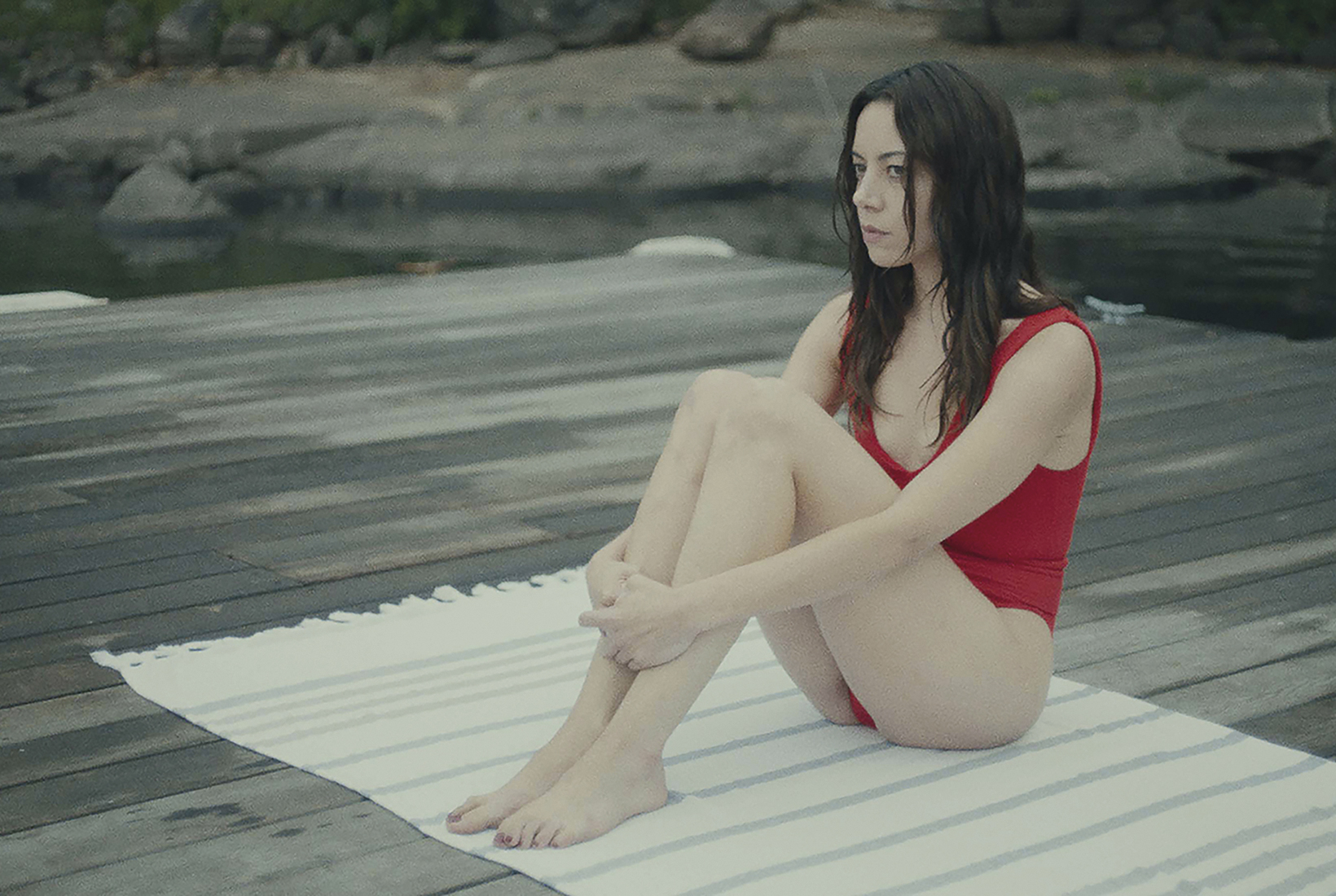Black Bear is one of those indie dramas that is meta on so many levels you can either sit with it afterwards or, if you’re weak like me, you’ll immediately turn to the internet for an explanation and may even find yourself buried deep in one of those Reddit threads that will make you wish you’d had the strength to just do the sitting.
This is a compelling film in its way, and it’s well performed, with a surprising reset midway through, and you don’t have to fully understand a film to enjoy it. But if I’m honest? I do feel a little bit cheated when an interpretation or ending isn’t fully nailed down. My limitation, I’m sure.
It will do your head in but sometimes it’s good to have your head done in
It is written and directed by Lawrence Michael Levine and stars Aubrey Plaza as Allison, a filmmaker who makes ‘small, unsuccessful films nobody likes’ and who hopes to write her next one while staying at a lakeside retreat. (One should always be wary of ‘lakeside retreats’ just as one should always be wary of ‘a cabin in the woods’: nothing good ever happens in these places.)
The retreat is run by Gabe (Christopher Abbott) and Blair (Sarah Gadon), a married couple who either love each other or hate each other. Hard to know. Either way, a booze-fuelled evening leads to the pair airing old grievances, rowing about feminism and needling each other about their failed artistic careers. Allison, who has never stopped lying since the moment she arrived, or so we’re given to understand, doesn’t help matters by openly flirting with Gabe, who openly flirts back, appeases Blair, then openly flirts back again (I was never on #teamGabe).
It’s all very Who’s Afraid of Virginia Woolf? or Tennessee Williams, and the situation escalates quickly and violently. But then the film abruptly resets to ‘Part Two’ and becomes a different film, albeit one that in some ways mirrors Part One. Meta enough for you yet? I hope not as we’ve barely begun.
We’re at the same location but now the lakeside retreat is a film set where Gabe is the director and Allison is his wife and the star of the film while Blair is her co-star. (Was Alison writing Part Two during Part One? Or were the events of Part One part of the film shoot? Should we even be worrying about what’s fact and what’s fiction? How do we stop?) The central love triangle is carried over — but in an unexpected way — as the action becomes more feverish and intense and manipulative and destructively cruel (oh, Gabe).
Is this about male directors messing up their leading ladies generally? Like, say, Alfred Hitchcock and Stanley Kubrick were wont to do? Is that what this is about? Artistic excellence whatever the cost? (Dear God, why can’t I just sit with it?) There are, thankfully, funny moments, which are a relief — the film crew play the film crew and one member grapples with diarrhoea, which doesn’t sound funny but is quite — and Levine obviously has an ear for acerbic dialogue, plus Allison is well drawn even if Blair is less so.
But I’m not sure how much you can properly care about characters when you’re mostly absorbed in trying to work out what is going on. And, with hindsight, I wonder if the women couldn’t have shown more agency. Wouldn’t it have been more interesting and arresting if Allison or Blair had messed up Gabe?
But the performances are strong — Plaza somehow dazzles even when only staring out at the lake — and it’s never dull. It’ll do your head in but sometimes it’s good to have your head done in. Good luck, by the way, if you do go down that Reddit rabbit hole. But as you won’t find much sense there, I’d sit with it, if you can.






Comments